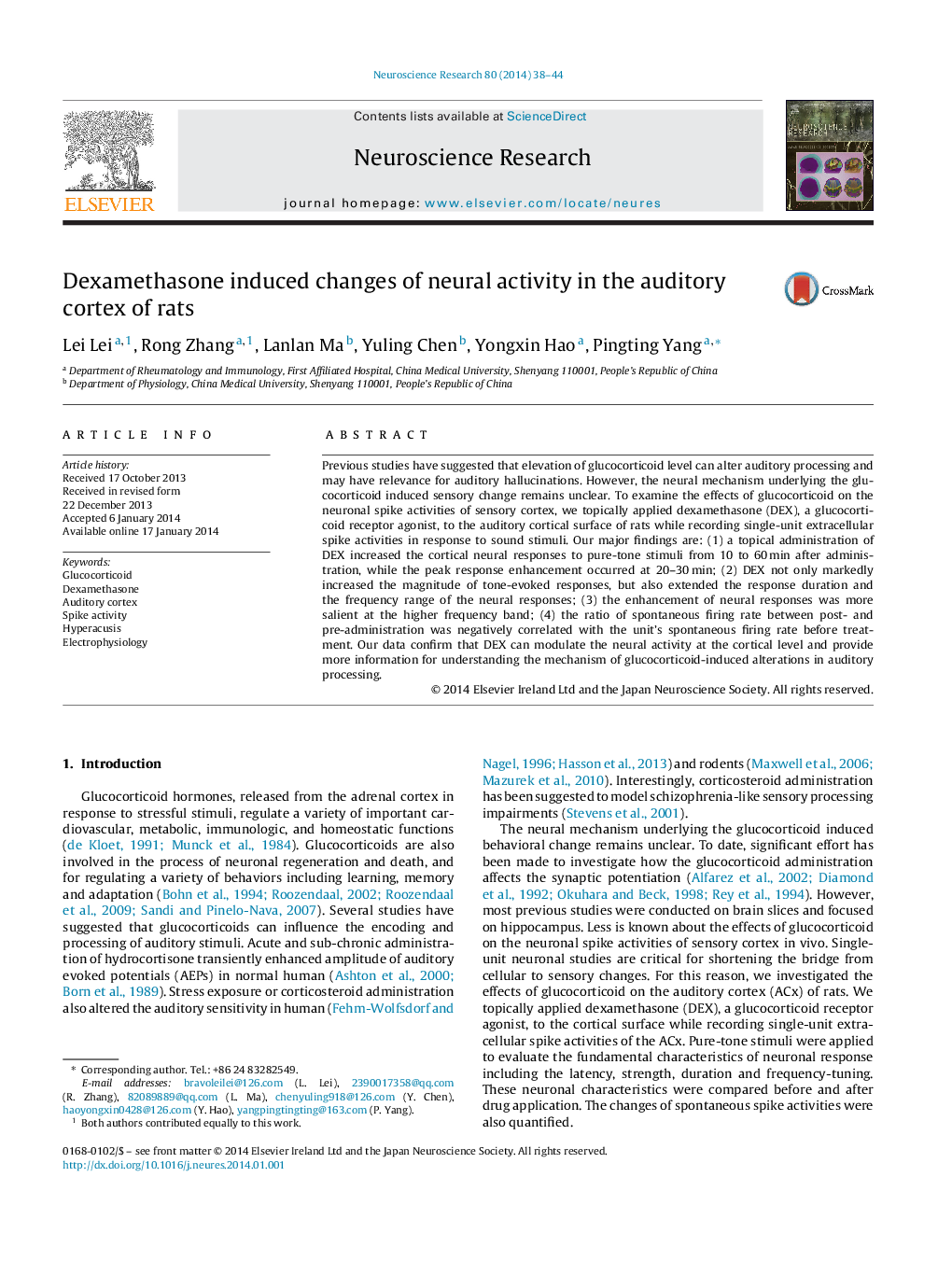| Article ID | Journal | Published Year | Pages | File Type |
|---|---|---|---|---|
| 4351456 | Neuroscience Research | 2014 | 7 Pages |
•We examined the effects of dexamethasone (DEX) on the neuronal spiking activities of auditory cortex.•A topical administration of DEX increased the cortical neural responses to pure-tone stimuli.•The frequency range of the neural responses was extended.•The enhancement of neural responses was more salient at the higher frequency band.•Low spontaneous firing rate was increased and high spontaneous rate was decreased.
Previous studies have suggested that elevation of glucocorticoid level can alter auditory processing and may have relevance for auditory hallucinations. However, the neural mechanism underlying the glucocorticoid induced sensory change remains unclear. To examine the effects of glucocorticoid on the neuronal spike activities of sensory cortex, we topically applied dexamethasone (DEX), a glucocorticoid receptor agonist, to the auditory cortical surface of rats while recording single-unit extracellular spike activities in response to sound stimuli. Our major findings are: (1) a topical administration of DEX increased the cortical neural responses to pure-tone stimuli from 10 to 60 min after administration, while the peak response enhancement occurred at 20–30 min; (2) DEX not only markedly increased the magnitude of tone-evoked responses, but also extended the response duration and the frequency range of the neural responses; (3) the enhancement of neural responses was more salient at the higher frequency band; (4) the ratio of spontaneous firing rate between post- and pre-administration was negatively correlated with the unit's spontaneous firing rate before treatment. Our data confirm that DEX can modulate the neural activity at the cortical level and provide more information for understanding the mechanism of glucocorticoid-induced alterations in auditory processing.
